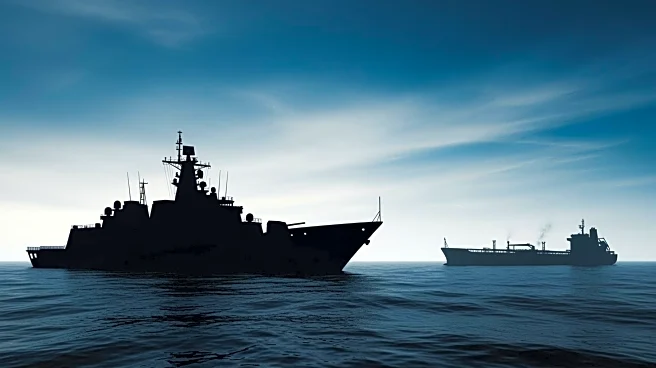What's Happening?
An EU warship successfully secured the crew of the oil products tanker Hellas Aphrodite after it was attacked by pirates off the coast of Somalia. The incident marks a resurgence of piracy in the region,
which had seen a decline in such activities due to international naval interventions. The EU's anti-piracy naval mission, Atalanta, deployed a frigate to the area, ensuring the safety of the crew, who had taken refuge in a safe room during the attack. The pirates reportedly left the vessel before the warship arrived. This attack is part of a recent spate of piracy incidents in the region, raising concerns over the security of shipping lanes crucial for transporting energy and goods globally.
Why It's Important?
The resurgence of piracy off the Horn of Africa poses significant threats to international shipping lanes, which are vital for global trade and energy transportation. The security of these routes is crucial for maintaining stable supply chains and preventing disruptions in the delivery of goods and energy resources. The increased pirate activity could lead to higher insurance costs and necessitate more robust security measures for vessels operating in the region. Additionally, the situation highlights the ongoing geopolitical tensions in the area, with groups like Yemen's Houthi militia also posing threats to maritime security. The international community may need to reassess and strengthen its naval presence to deter further piracy and ensure safe passage for commercial vessels.
What's Next?
The international community, particularly Western naval forces, may need to increase their presence and patrols in the region to prevent further piracy incidents. Shipping companies might consider rerouting their vessels to avoid high-risk areas, potentially increasing transit times and costs. There could also be diplomatic efforts to address the root causes of piracy, such as economic instability and lack of governance in Somalia. Additionally, maritime security firms may see increased demand for their services as shipping companies seek to protect their assets and crews from pirate attacks.
Beyond the Headlines
The resurgence of piracy in the region could have broader implications for international maritime law and security protocols. It may prompt discussions on the effectiveness of current anti-piracy strategies and the need for more comprehensive approaches that address socio-economic issues in piracy-prone areas. Furthermore, the situation underscores the interconnectedness of global security challenges, where regional conflicts and instability can have far-reaching impacts on international trade and security.










